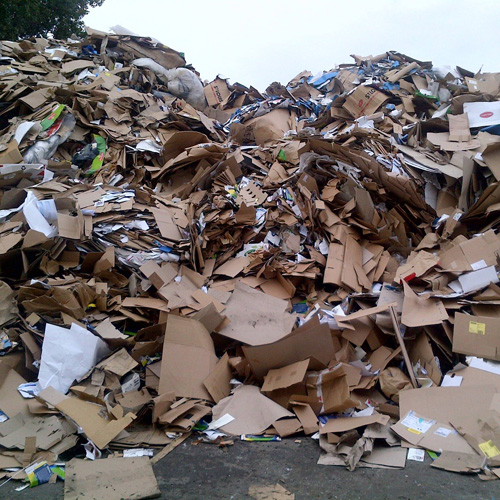Origin Link from People's Daily Online.
It seems like China’s decision to stop imports of “foreign garbage” has once again stung the hearts of some US officials.
It seems like China’s decision to stop imports of “foreign garbage” has once again stung the hearts of some US officials.
China recently adopted a policy banning the import of solid wastes. However, US officials expressed concerns over China's decision on March 23 at the WTO Council for Trade in Goods meeting, saying that China's import restrictions on recycled commodities has caused a fundamental disruption in global supply chains for scrap materials. China seemed to be violating WTO obligations, the officials said.
At a regular press conference of China’s Ministry of Foreign Affairs on March 26, the spokesperson Hua Chunying responded that the so-called "concerns" of relevant US officials are unjustifiable, illegitimate and have no legal basis.
China is a trade surplus country that manufactures products for the world. But it is also the largest importer of garbage. Each year, about 56 percent of global exported waste ended up in China.
In 2016, China imported 7.3 million tons of plastic waste that was worth $3.7 billion, and over 70% of the world’s electronic wastes went to China every year.
China’s imports of foreign wastes started in the 1980s because of the lack of raw materials. It was considered an economical method at that time.
For instance, imported waste paper pulp made up 24 percent of China’s total paper pulp in 2016. The recycled pulp has been made into everyday commodities and parcel packages, greatly benefiting the exporters.
However, such solutions have been overdeveloped by unscrupulous traders. Wasted needles and tubes re-emerged on the Chinese market after being cleaned, and slag from nonferrous metals has been exported to China for smelting.
An illegal economic chain therefore has been established, along with counterfeits, increasing health risks, and irreversible damages on soil, water and air.
Of course China has taken measures to handle the situation, but they were not forceful enough to fight against the huge illegal profits. Even today, the smuggling of worn-out clothes and electronic wastes can still be heard in the news.
Obviously, China’s decision this time is a comprehensive action against this illegal industrial chain. Those individuals and enterprises who managed to gain profits from the industry will inevitably experience a hard time. But such hard time is worthy.
China still sees huge demand for raw materials such as paper, metal, rubber and plastic. After the ban, the price for domestic wastes will go up, which will lead to the rise of domestic recycling rates and revenue in the industry.
Making use of more wastes will further reduce pollution and better protect the environment. China has the capability to achieve it.
This article is edited and translated from Xiakedao, the WeChat account of the People’s Daily’s Overseas Edition.









